Dnipro, Drohobych, Lviv, Mukachevo, and Ternopil are recognized as transparent in 2023 — Transparency International Ukraine
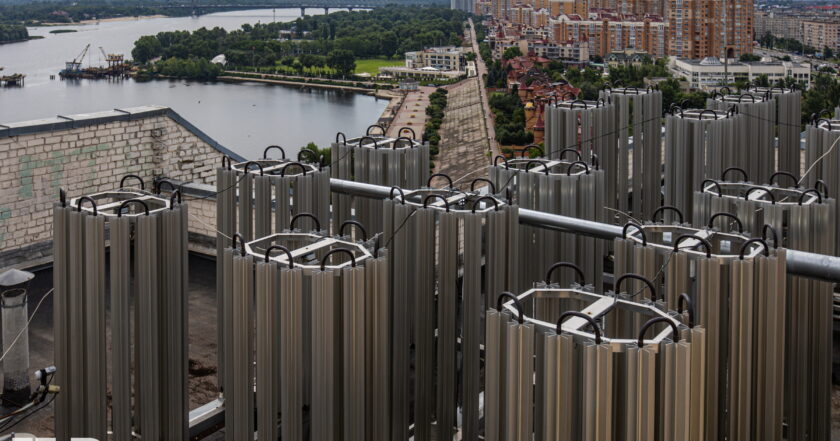
23 cities were recognized as partially transparent, and the other 52 as non-transparent. Despite the challenges of the war, cities managed to make some progress in 2023, but the majority are still non-transparent—65%. In 2022, this figure was 81.4%.
Transparent Cities, a program of Transparency International Ukraine, published these data in a study of the operation of 80 city councils during the full-scale war in 2023.
This is the second study of the transparency of city authorities during the full-scale war. In 2022, the program studied 70 cities. Like last year, the cities were granted the status of transparent, partially transparent, or non-transparent instead of points. In 2023, program analysts additionally assessed 10 frontline municipalities.
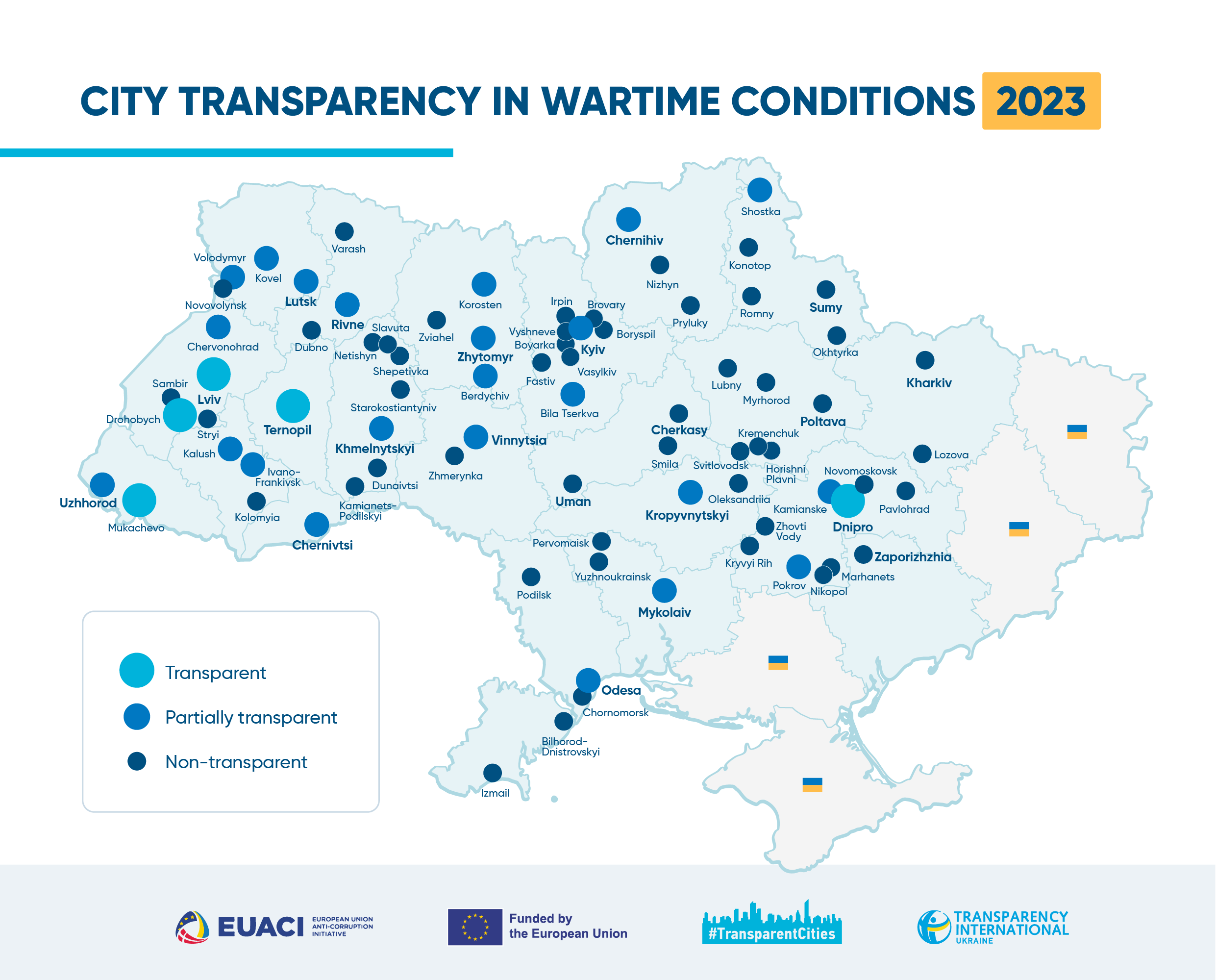
The overall level of transparency of 80 municipalities in 2023 shows a slight increase and reaches 42.3%, while in 2022, with the 70 cities studied, it amounted to 37.5%. In a year, 14 cities improved their category: 2 cities switched to transparent, and 12 received the status of partially transparent. In total, 30 city councils improved their transparency levels by 5% or more. There were cities that regressed by 10–15%.
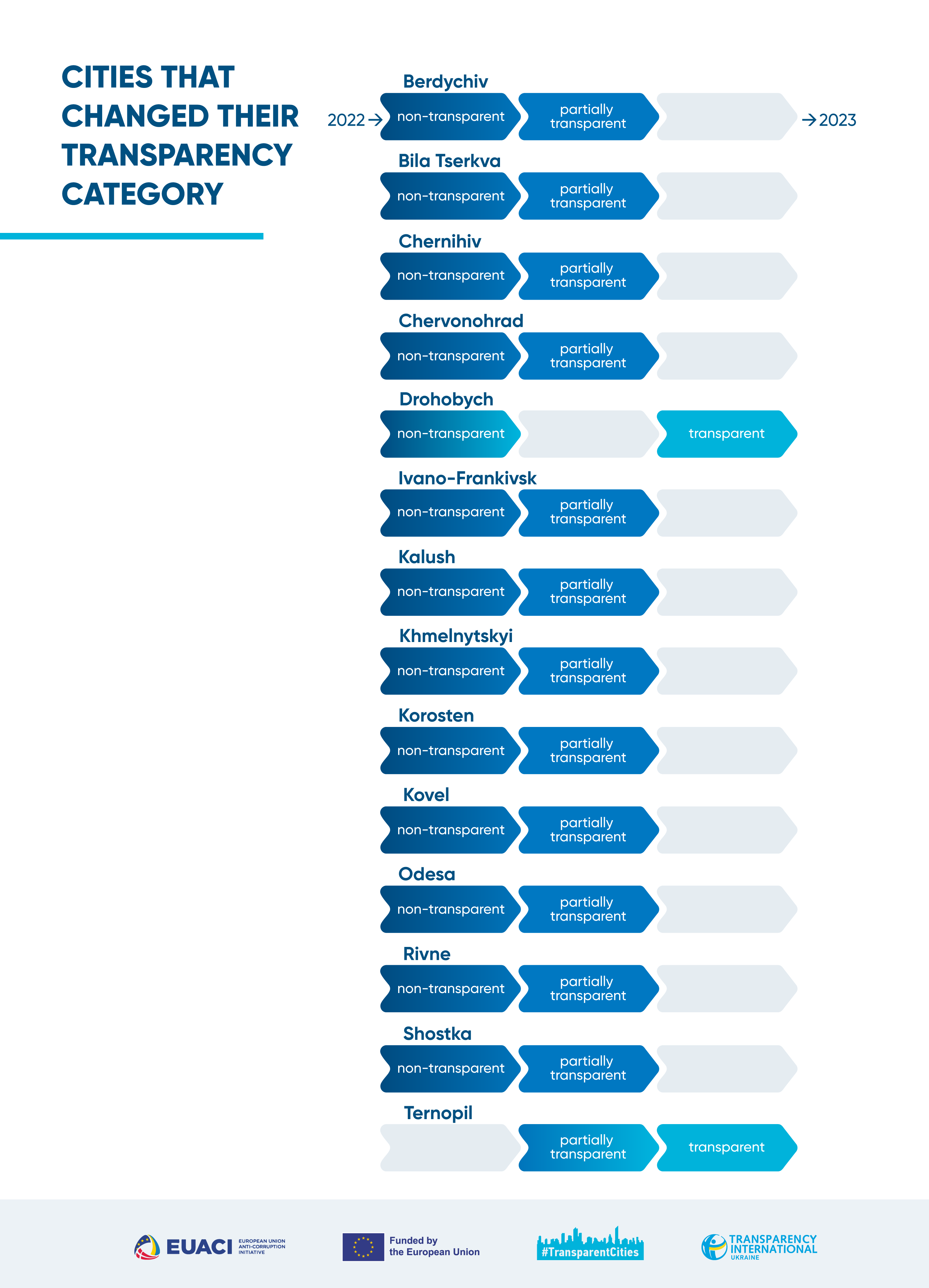
Drohobych made a stunning leap, turning from non-transparent in 2022 to transparent. Ivano-Frankivsk showed similar progress, having improved its transparency by 31.9%. The average level of transparency of the studied frontline cities did not differ significantly from the overall level of transparency of municipalities (39.4% and 42.3%). These data indicate that cities can work and develop effectively under wartime restrictions and even under attacks, and the proximity to the front is not an obstacle to transparency.
«Being an open and transparent city during a full-scale war is not easy, but it is possible. The number of challenges for city councils is only growing: military, economic, demographic, psychological… This affects both local governments and citizens. There are cities that managed to demonstrate significant results and prove that progress is possible even under such circumstances. We urge local authorities not to give up and work on transparency because it is about resilience and our tomorrow», — said Olesia Koval, head of the Transparent Cities program.
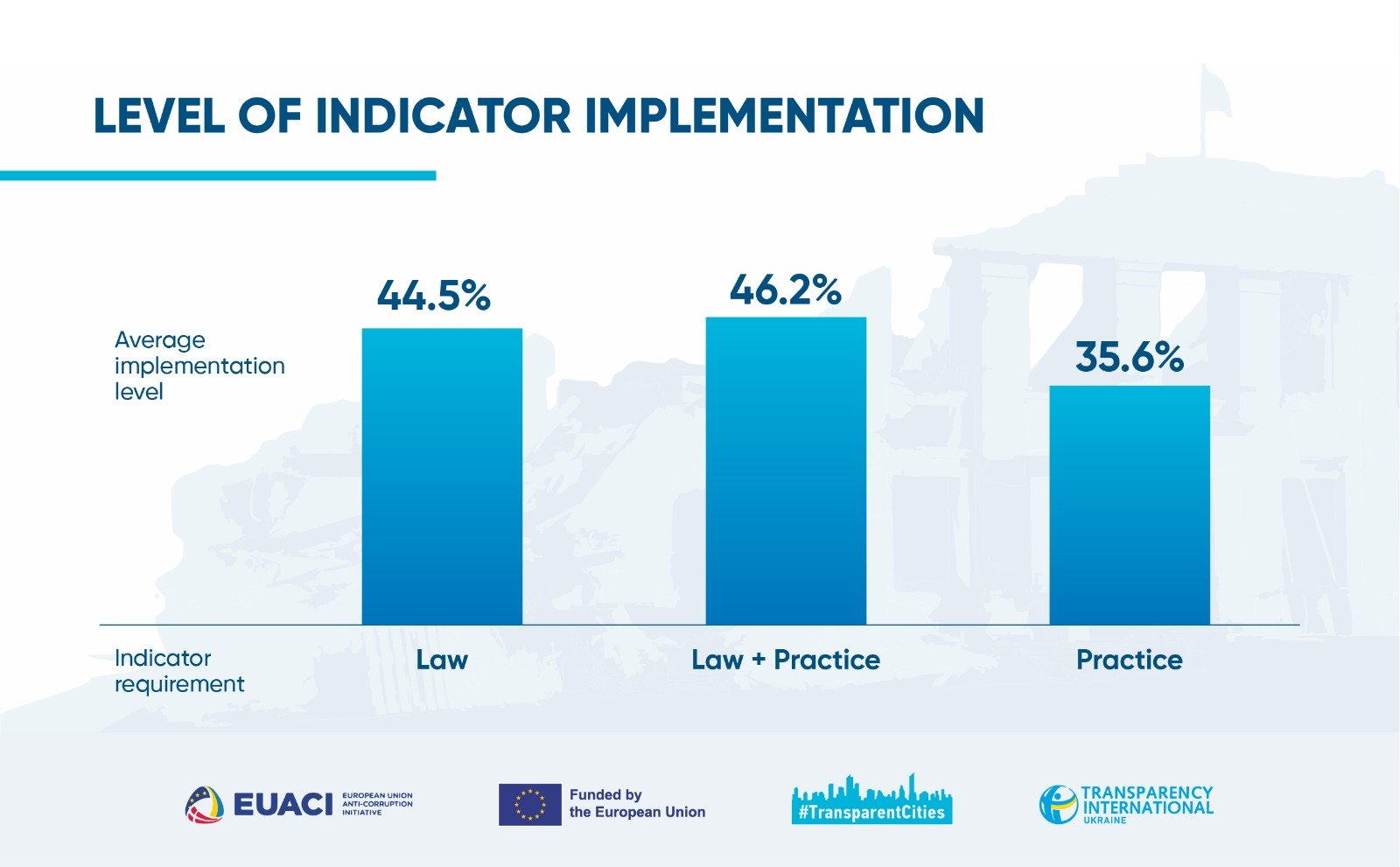
The program has developed recommendations for cities that will help increase their transparency in wartime and contribute to the successful European integration of Ukraine:
- stream or publish the recordings of meetings of the city council, the executive committee, and standing commissions within 24 hours;
- include citizens in advisory bodies (IDP Councils, commissions to consider applications for compensation for destroyed property, and public commissions on housing issues);
- publish lists of persons appointed to positions outside the competition;
- update the lists of structures intended for sheltering the population;
- ensure transparent accounting and management of municipal property and land, as well as humanitarian aid received;
- avoid restricting access to datasets (unless otherwise required by applicable regulatory acts); ensure they are in a machine-readable format.
The full text of the study can be found at the link.
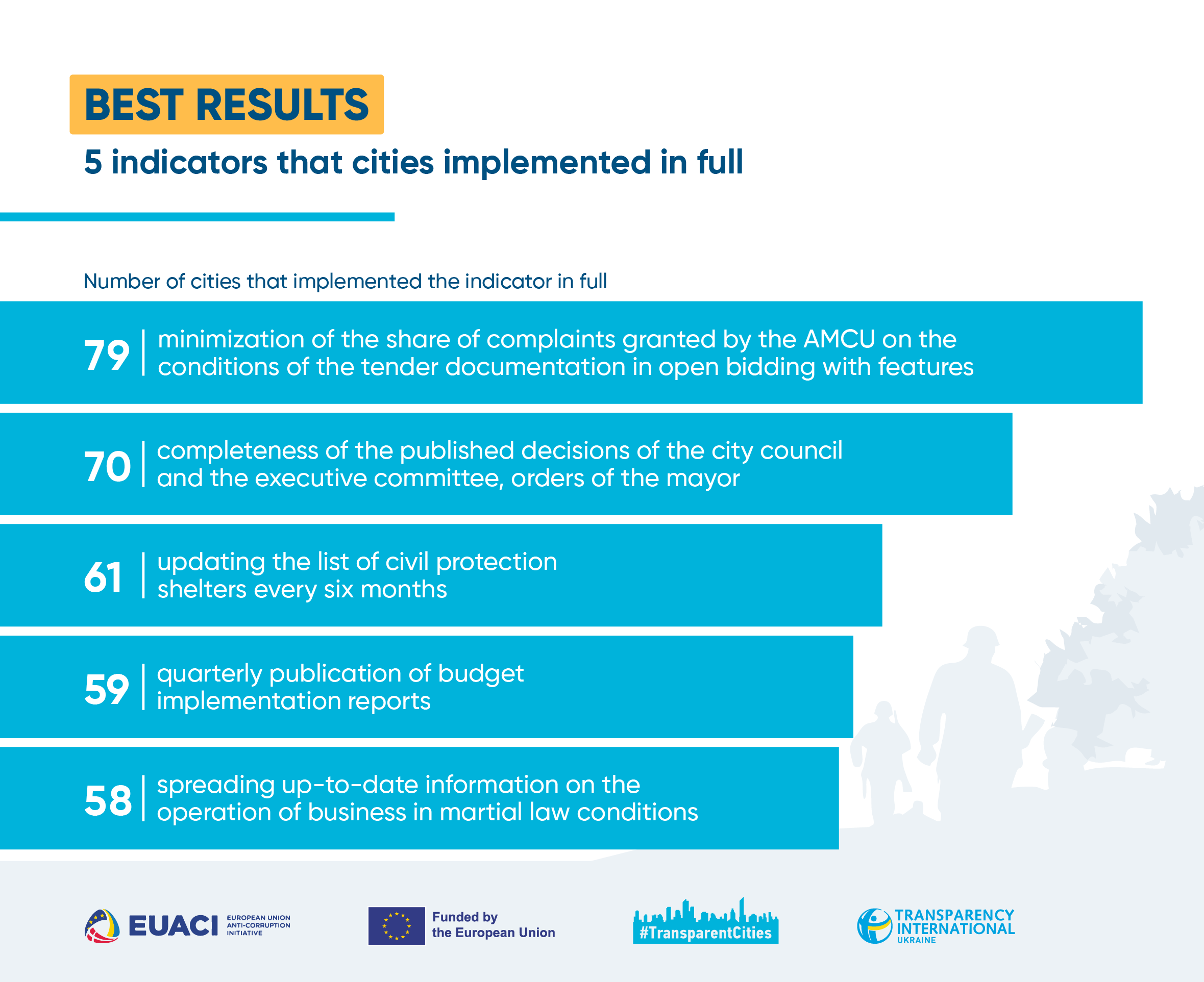
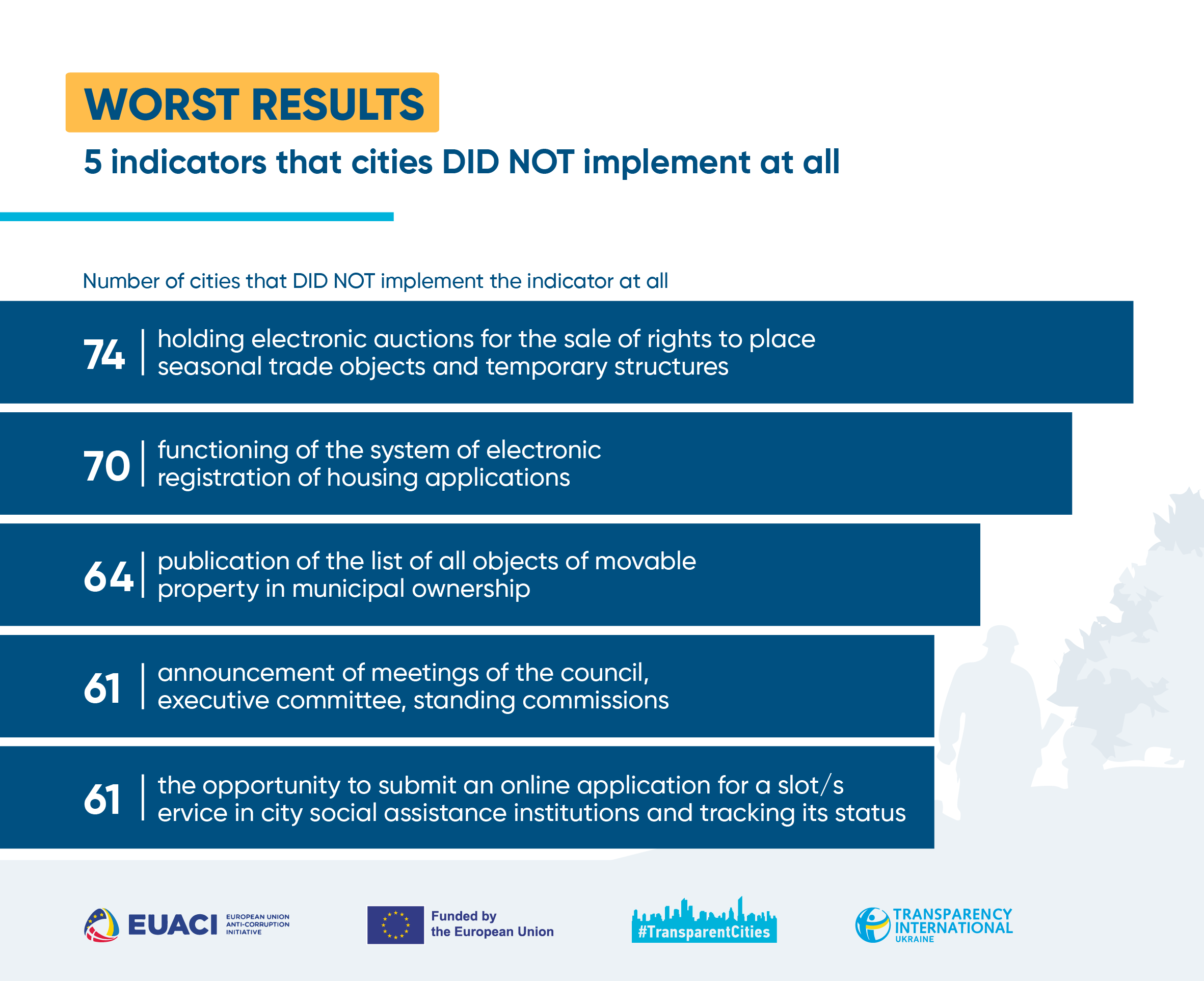
The project is supported by the European Union Anti-Corruption Initiative (EUACI), a leading EU-funded anti-corruption program in Ukraine, co-financed and implemented by the Danish Ministry of Foreign Affairs. The opinions and views expressed by experts or organizations in this study do not necessarily reflect the position of the EUACI, the European Union, or the Danish Ministry of Foreign Affairs.



















































